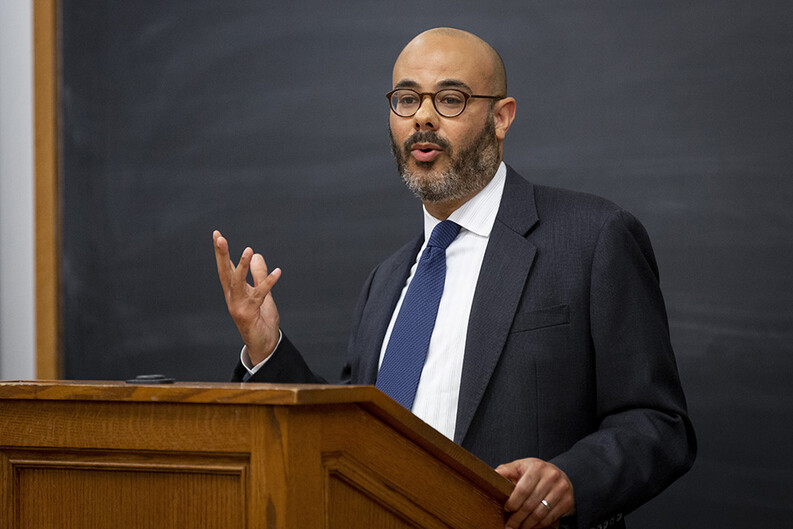WATCH: Professor Driver Delivers Lecture at the U.S. Supreme Court

Professor Justin Driver delivered a lecture at the U.S. Supreme Court on October 24, 2019, as part of the 2019 Leon Silverman Lecture series. The lecture was titled, “Dissents From Outside the Judiciary — The Southern Manifesto as a Dissent to the Brown Decision.” The lecture is now online and recently aired on C-Span.
U.S. Supreme Court Justice Elena Kagan introduced Driver, noting how he used to be her student at Harvard Law School.
“I can tell you from those long ago years that he is super smart and super thoughtful with a very keen eye for fascinating legal and historical subjects,” Kagan said.
At the lecture, Professor Driver explored the “Southern Manifesto,” a document congressional members wrote in 1956 to oppose the Supreme Court’s decision in Brown v. Board of Education from two years earlier. Driver analyzed how Senator Strom Thurmond, Senator Sam Ervin, and other signatories defended racial segregation in public schools. The southern delegation demonstrated much greater flexibility and legal sophistication than is commonly appreciated in their efforts to mute the effects of Brown, Driver argued. The conclusion of the lecture contended that the Southern Manifesto’s signatories anticipated the Roberts Court’s interpretation of the Equal Protection Clause in the Parents Involved in Community Schools case, which curtailed the ability of school districts to pursue racial integration.
At the time Parents Involved was decided in 2007, Driver was a law clerk to U.S. Supreme Court Justice Stephen Breyer, who wrote a lengthy, vehement dissenting opinion in the case, claiming the majority distorted the meaning of Brown.
“That experience proved crucial in motivating me to write The Schoolhouse Gate: Public Education, the Supreme Court, and the Battle for the American Mind,” said Driver, describing his critically acclaimed book that examined students’ constitutional rights.
Driver has a distinguished publication record in the nation’s leading law reviews. He has also written extensively for general audiences, including pieces in Slate, The Atlantic, The New York Times, The Washington Post, and The New Republic, where he was a contributing editor. A member of the American Law Institute and of the American Constitution Society’s Academic Advisory Board, Driver is also an editor of the Supreme Court Review.
Prior to arriving at Yale, Driver was the Harry N. Wyatt Professor of Law at the University of Chicago. Driver is a graduate of Brown, Oxford (where he was a Marshall Scholar), Duke (where he received certification to teach public school), and Harvard Law School (where he was an editor of the Harvard Law Review). After graduating from Harvard, Driver clerked for Judge Merrick B. Garland, Justice Stephen Breyer, and Justice Sandra Day O’Connor.


